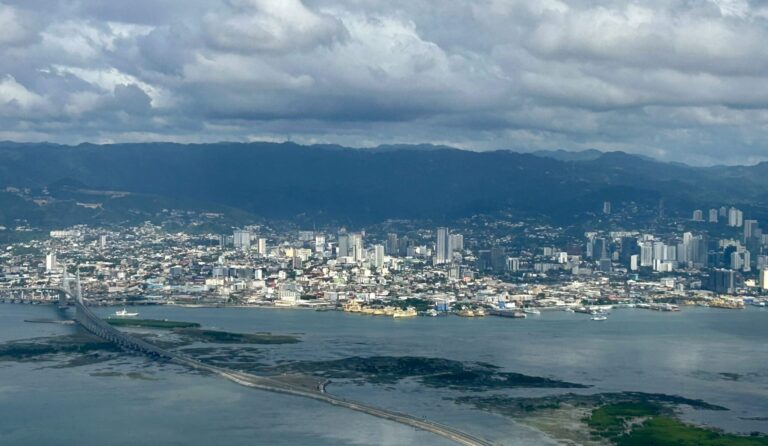
An aerial view of Cebu City. CDN DIGITAL PHOTO/Brian J. Ochoa
The Cebu City government plans to create a creative industries district, requiring at least P10 billion to develop a 150-hectare area of the city.
“We are planning to invite investors to whatever scheme. It could be a [public-private partnership], they can lease our properties,” Cebu City acting mayor Raymond Alvin Neri Garcia told reporters last week during a presentation.
Garcia said that the city is willing to offer a tax holiday of three to five years for interested investors.
Metro Pacific Tollways starts two Calabarzon toll roads in June
The plan for this envisioned district, which was completed with the help of the University of San Carlos, is intended to attract businesses in the creative field such as filmmaking, entertainment, cultural arts and design architecture, among others.
READ: Creative, heritage, and business districts eyed for Cebu City’s waterfront
“Cebu already has many of these businesses, including the fashion sector. But they are fragmented now,” Ann Marie Cuizon, assistant department head of the city planning office, told reporters during the same event.
“I think this sector can still grow further. But it will help if they are in one environment and then they can easily collaborate with each other,” Cuizon said.
She added that they are also looking at other types of businesses which can provide support to the creative industry to locate inside the district, mentioning in particular those that are involved in tourism.
Earlier in March, the Department of Trade and Industry said it was in the process of creating an industry road map for the creative industry which will benefit several disciplines including architecture and landscape, e-sports and fashion and textile.
Trade Secretary Alfredo Pascual said that the government will establish a creative industry venture fund which could be used to cofinance the business expansion of creative enterprises and individuals.
Pascual had noted that these types of enterprises have limited access to capital, which he said was crucial in sustaining and expanding their operations.
He added that financial support in the form of grants and soft loans are also in the works. —ALDEN MONZON